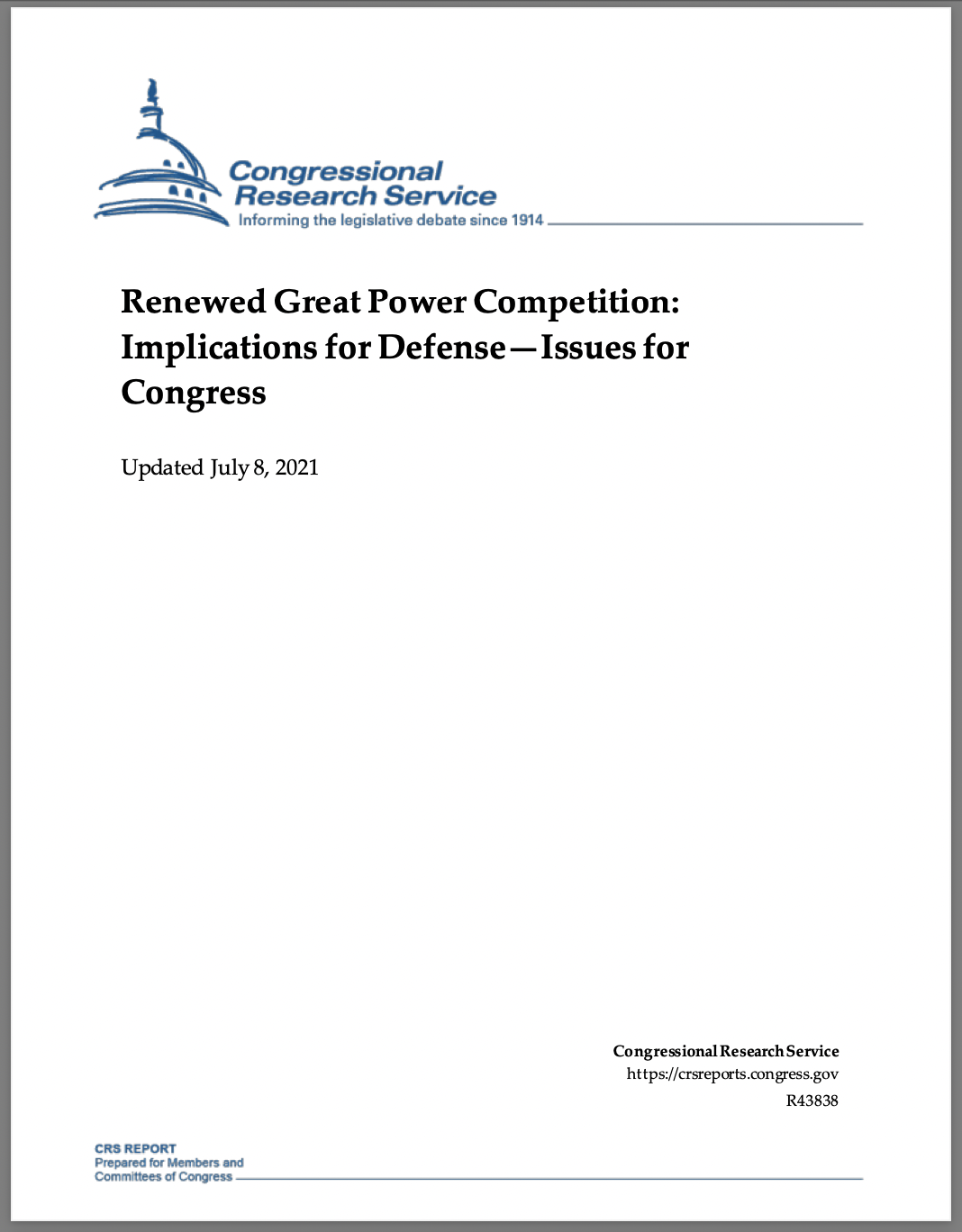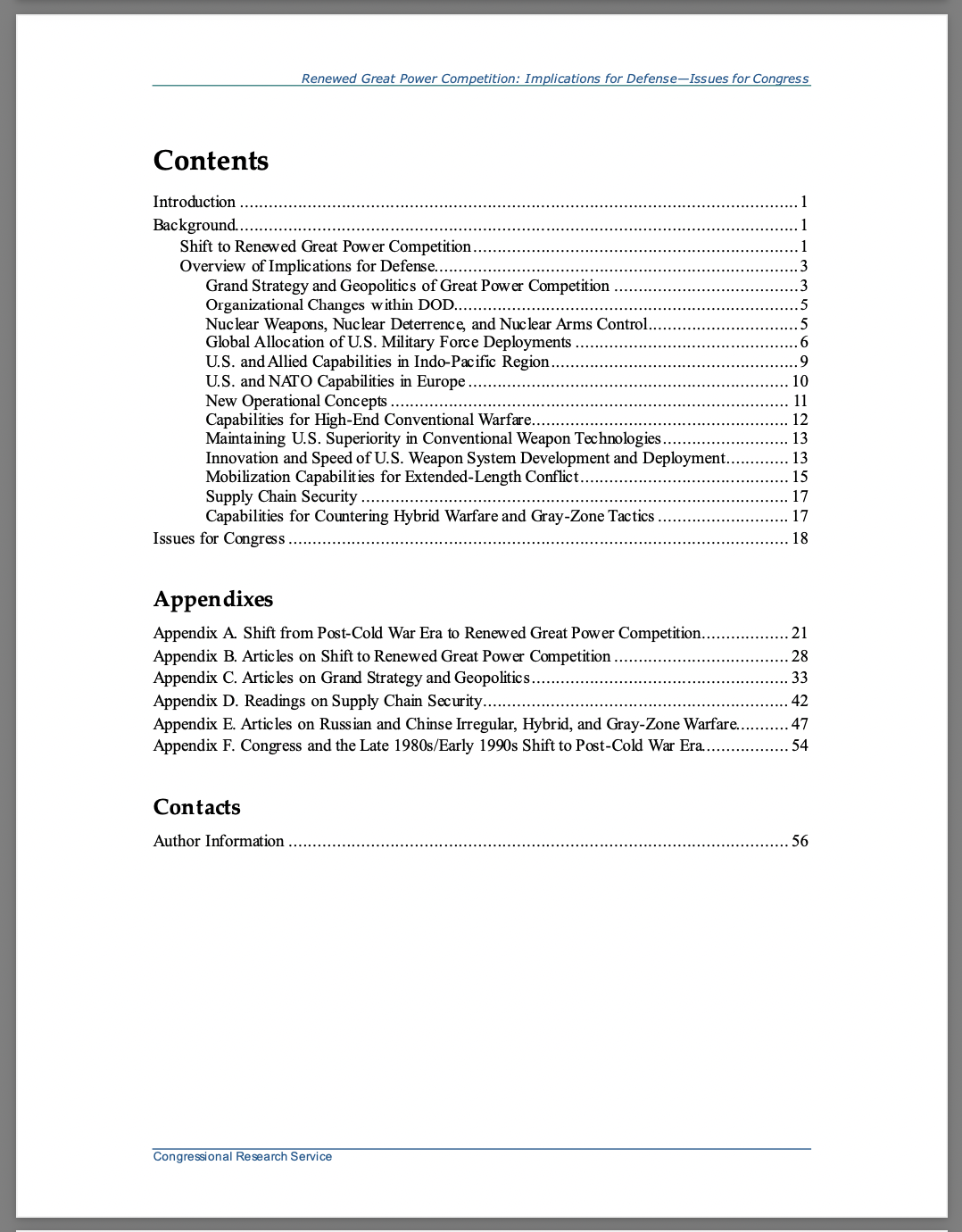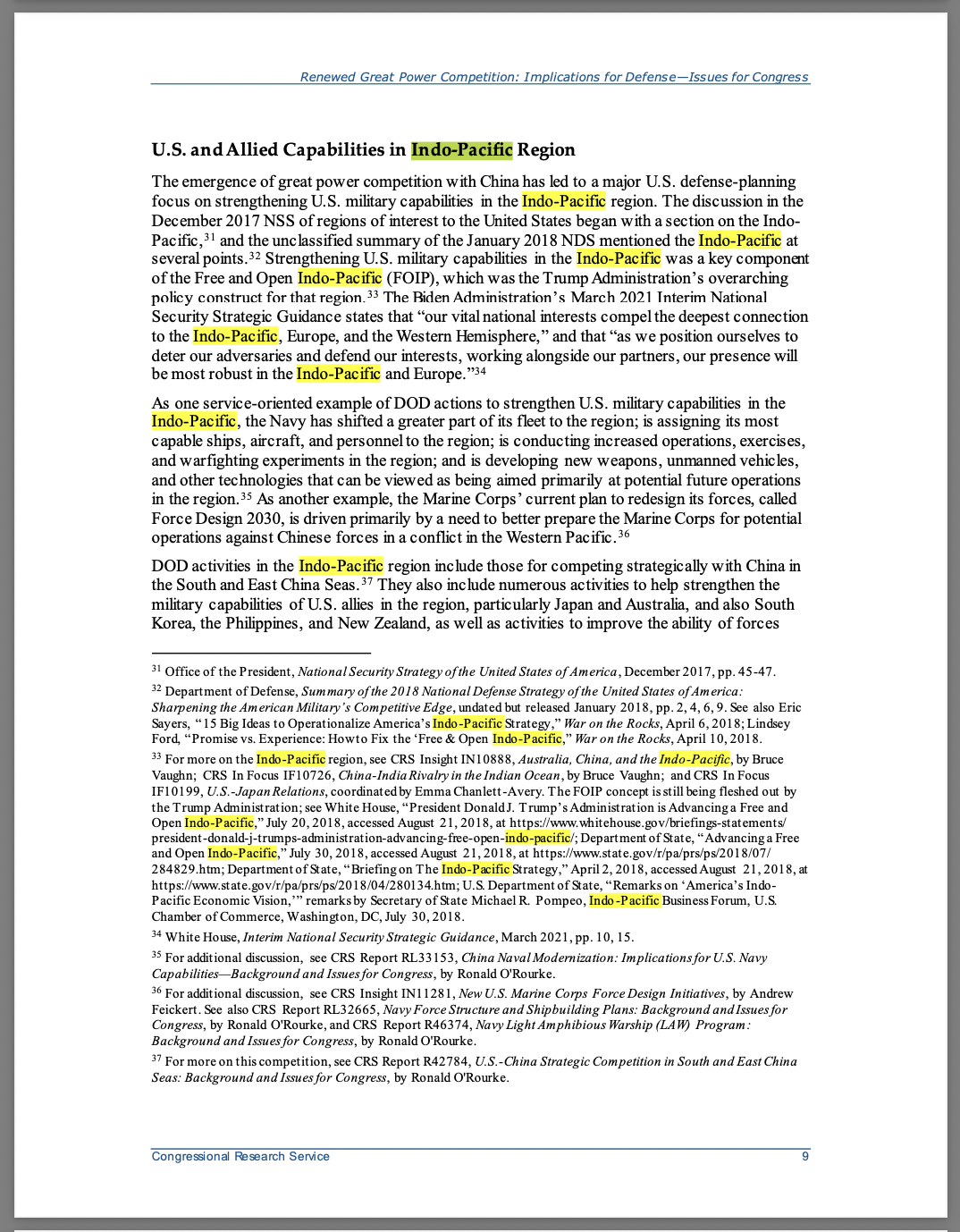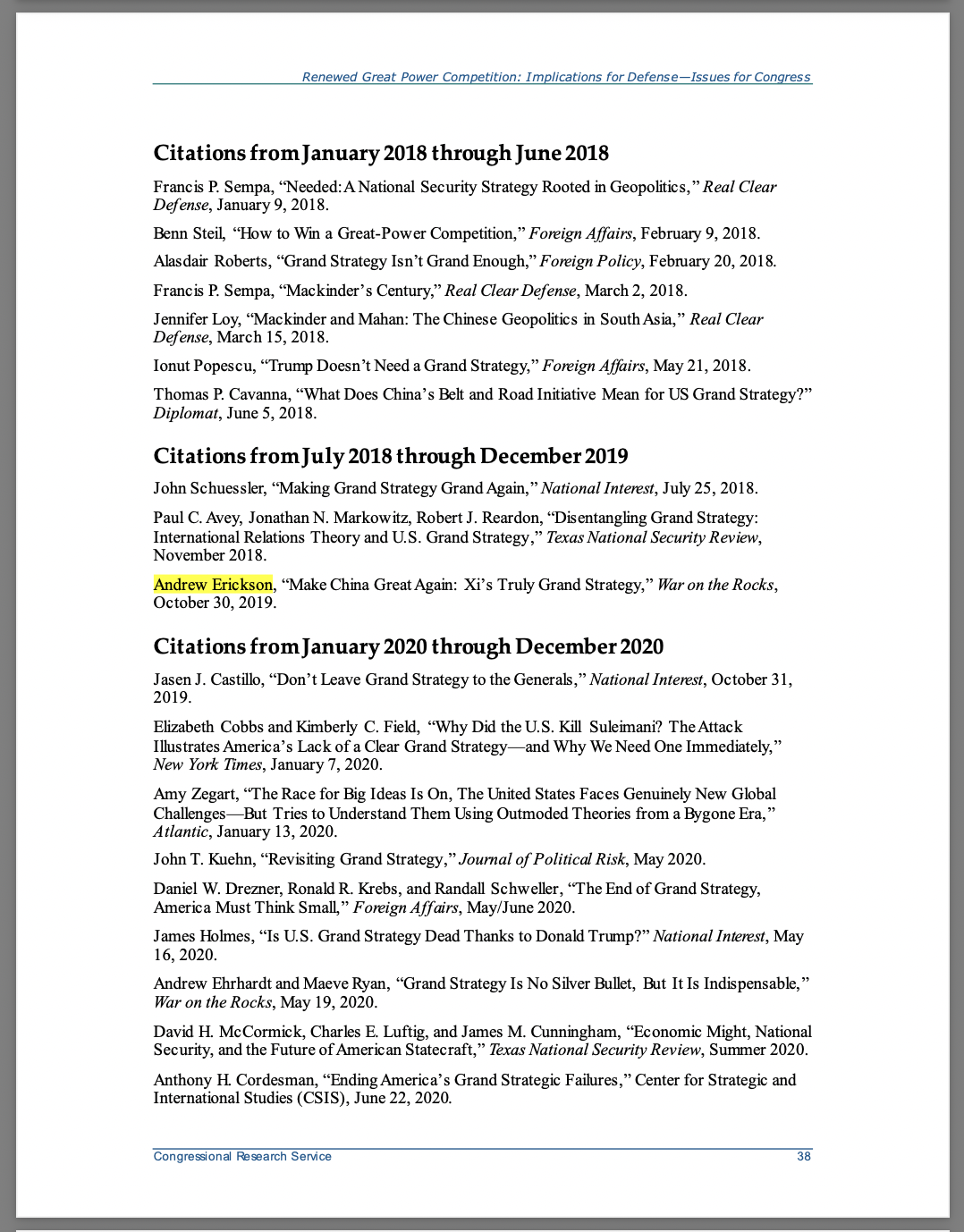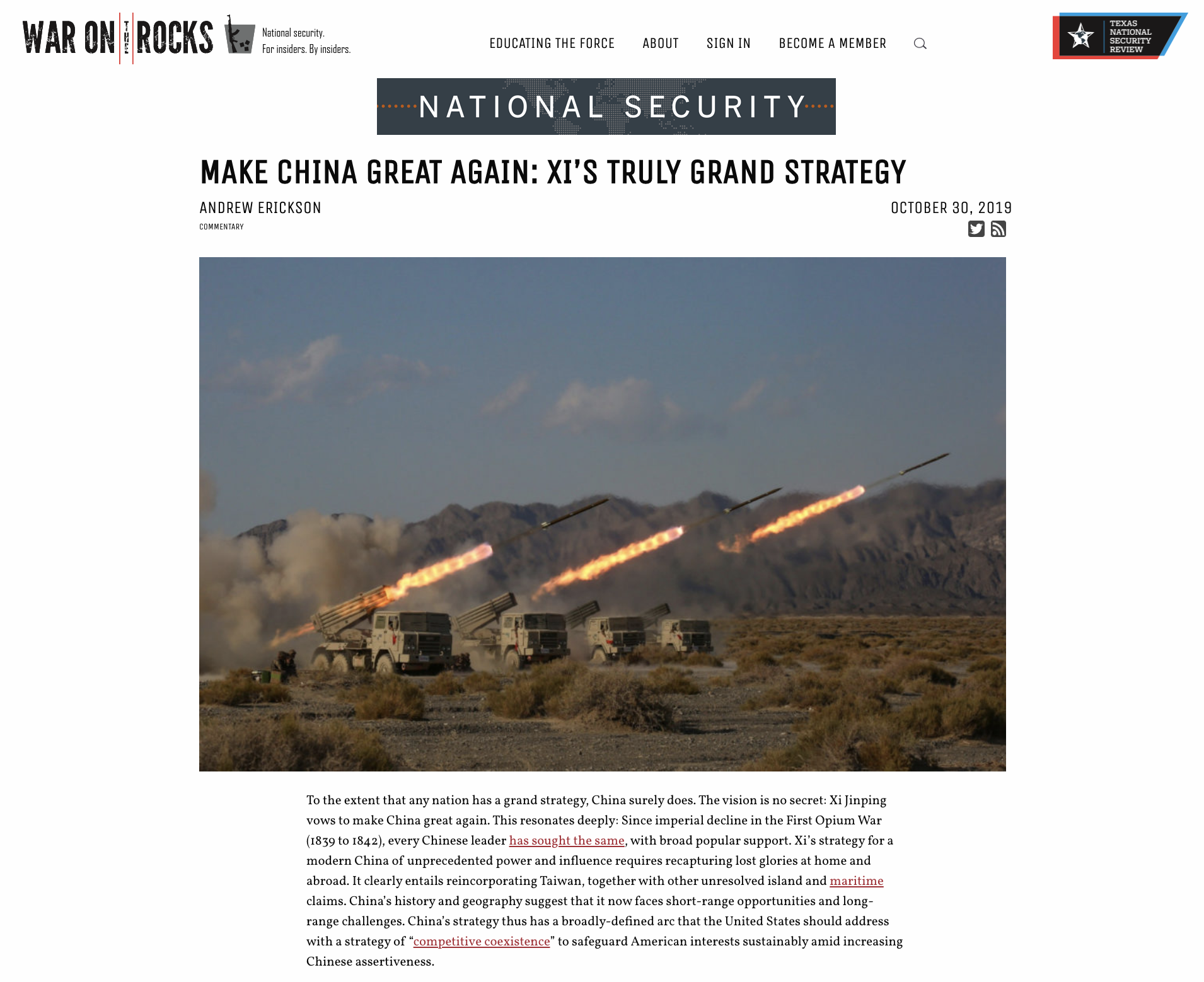New Edition of a Key CRS Report for Our Time—“Renewed Great Power Competition”
This pithy report surveys important overarching dynamics of this brave re(new)ed era involving competition with China and Russia…
Ronald O’Rourke, Renewed Great Power Competition: Implications for Defense—Issues for Congress, R43838 (Washington, DC: Congressional Research Service, 8 July 2021).
If you have trouble accessing the website above, please download a cached copy here.
You can also click here to access the report via the new public CRS website.
Summary
The emergence of great power competition with China and Russia has profoundly changed the conversation about U.S. defense issues from what it was during the post-Cold War era: Counterterrorist operations and U.S. military operations in the Middle East—which were moved to the center of discussions of U.S. defense issues following the terrorist attacks of September 11, 2001—are now a less-dominant element in the conversation, and the conversation now features a new or renewed emphasis on the following, all of which relate to China and/or Russia:
- grand strategy and the geopolitics of great power competition as a starting point for discussing U.S. defense issues;
- organizational changes within DOD;
- nuclear weapons, nuclear deterrence, and nuclear arms control;
- the global allocation of U.S. military force deployments;
- U.S. and allied military capabilities in the Indo-Pacific region;
- U.S. and NATO military capabilities in Europe;
- new U.S. military service operational concepts;
- capabilities for conducting so-called high-end conventional warfare;
- maintaining U.S. superiority in conventional weapon technologies;
- innovation and speed of U.S. weapon system development and deployment;
- mobilization capabilities for an extended-length large-scale conflict;
- supply chain security, meaning awareness and minimization of reliance in U.S. military systems on foreign components, subcomponents, materials, and software; and
- capabilities for countering so-called hybrid warfare and gray-zone tactics.
The issue for Congress is how U.S. defense planning should respond to renewed great power competition with China and Russia, and whether to approve, reject, or modify the Biden Administration’s proposed defense funding levels, strategy, plans, and programs for addressing renewed great power competition. Congress’s decisions on these issues could have significant implications for U.S. defense capabilities and funding requirements.
Author’s Biography—Ronald O’Rourke
Mr. O’Rourke is a Phi Beta Kappa graduate of the Johns Hopkins University, from which he received his B.A. in international studies, and a valedictorian graduate of the University’s Paul Nitze School of Advanced International Studies, where he received his M.A. in the same field.
Since 1984, Mr. O’Rourke has worked as a naval analyst for the Congressional Research Service of the Library of Congress. He has written many reports for Congress on various issues relating to the Navy, the Coast Guard, defense acquisition, China’s naval forces and maritime territorial disputes, the Arctic, the international security environment, and the U.S. role in the world. He regularly briefs Members of Congress and Congressional staffers, and has testified before Congressional committees on many occasions.
In 1996, he received a Distinguished Service Award from the Library of Congress for his service to Congress on naval issues.
In 2010, he was honored under the Great Federal Employees Initiative for his work on naval, strategic, and budgetary issues.
In 2012, he received the CRS Director’s Award for his outstanding contributions in support of the Congress and the mission of CRS.
In 2017, he received the Superior Public Service Award from the Navy for service in a variety of roles at CRS while providing invaluable analysis of tremendous benefit to the Navy for a period spanning decades.
Mr. O’Rourke is the author of several journal articles on naval issues, and is a past winner of the U.S. Naval Institute’s Arleigh Burke essay contest. He has given presentations on naval, Coast Guard, and strategy issues to a variety of U.S. and international audiences in government, industry, and academia.
For one of the works referenced here, see: Andrew S. Erickson, “Make China Great Again: Xi’s Truly Grand Strategy,” War on the Rocks, 30 October 2019.

